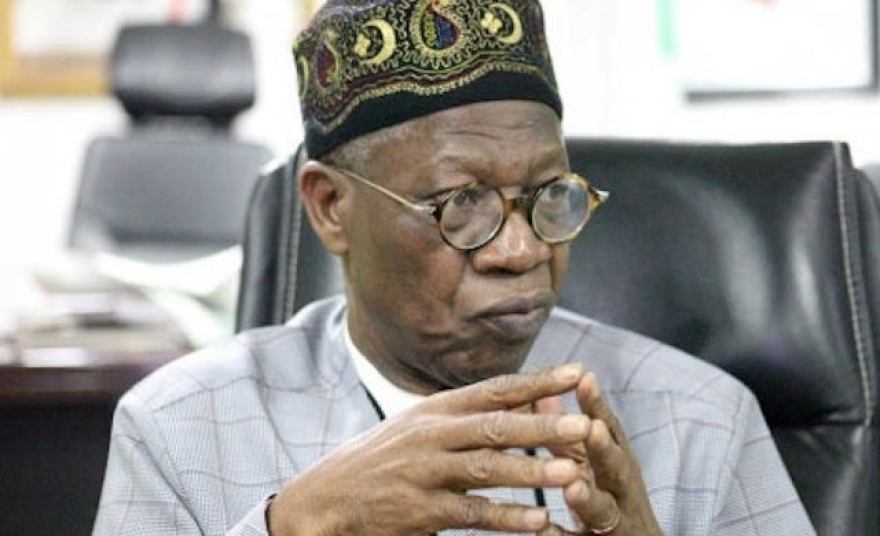NBC chairman says, Broadcasting Code, an illegality perpetrated by Lai Mohammed,

Chairman of the Board of the National Broadcasting Commission, NBC, Alhaji Ikra Aliyu Bilbis, has described the 6th National Broadcasting Code as an illegality perpetrated by the Minister of Information and Culture, Alhaji Lai Mohammed, and acting Director-General of the Commission, Professor Armstrong Idachaba.
Bilbis disclosed this at a press briefing held on Thursday in Abuja.
According to him, the actions of Mohammed and Armstrong Idachaba, amounted to usurpation of the powers of Commission.
The Chairman said Mohammed went beyond schedule of his legal responsibility by amending the code in a manner that threatens to destroy investments and lead to loss of jobs.
According to him, previous Information Ministers never interfered with the review of the code, saying that the NBC Act empowers the Commission to regulate industry practice standards, not the Information Minister.
He added that the process of the code review, which holds every four years, is marked by the participation of former Directors-General, retired directors and staff of the Commission, broadcasting organisations and media scholars.
The chairman noted that the amendment was at the instance of members of the Federal Executive Council, FEC, who wanted the NBC strengthened to ensure it could prevent a repeat of the divisive broadcasts recorded before, during and after the 2019 elections.
“The suggestion was of the FEC members and was accepted by President Muhammadu Buhari, who gave a go-ahead for the review, which Bilbis said was misunderstood by Mohammed.
“Instead of studying and following the law, relevant rules and regulations, and direct the appropriate authorities as stipulated by the law to act on, he erroneously embarked on the review alone.
“The Minister has constantly dropped the name of President Muhammadu Buhari as having approved his own version of the code review. The NBC Code is a regulatory framework put together jointly by stakeholders to guide their operations in the industry. It is therefore not a unilateral government instrument and is already covered by law hence, not requiring any further presidential approval.
“This might be the reason why till date the Minister cannot show us a copy of the Presidential approval,” said Bilbis.
Bilbis said Mohammed’s version of the NBC Code falls short of basic regulation-making, standards, as it is marked by indifference to stakeholder inclusiveness.
He described as false the claim of the NBC acting Director-General that it endorsed the Code prior to its presentation in Lagos, an event he said the Board was neither informed of or represented at.
Following public criticism of the review, Bilbis said the Board called for stakeholder perspectives, but the move was thwarted by Idachaba, who said he did not endorse it.
“There are very serious and disturbing amendments which have been unilaterally carried out by the Minister. This has attracted very critical comments, with threats of litigation from concerned organisations and individuals,” he said.
He explained that the Board is in agreement with the reasons for which many stakeholders are opposed to the code.
Such stakeholders, he said, include Nobel laureate, Professor Wole Soyinka, activists, legal practitioners, broadcasters, investors, content creators, copyright experts and professional organisations.

